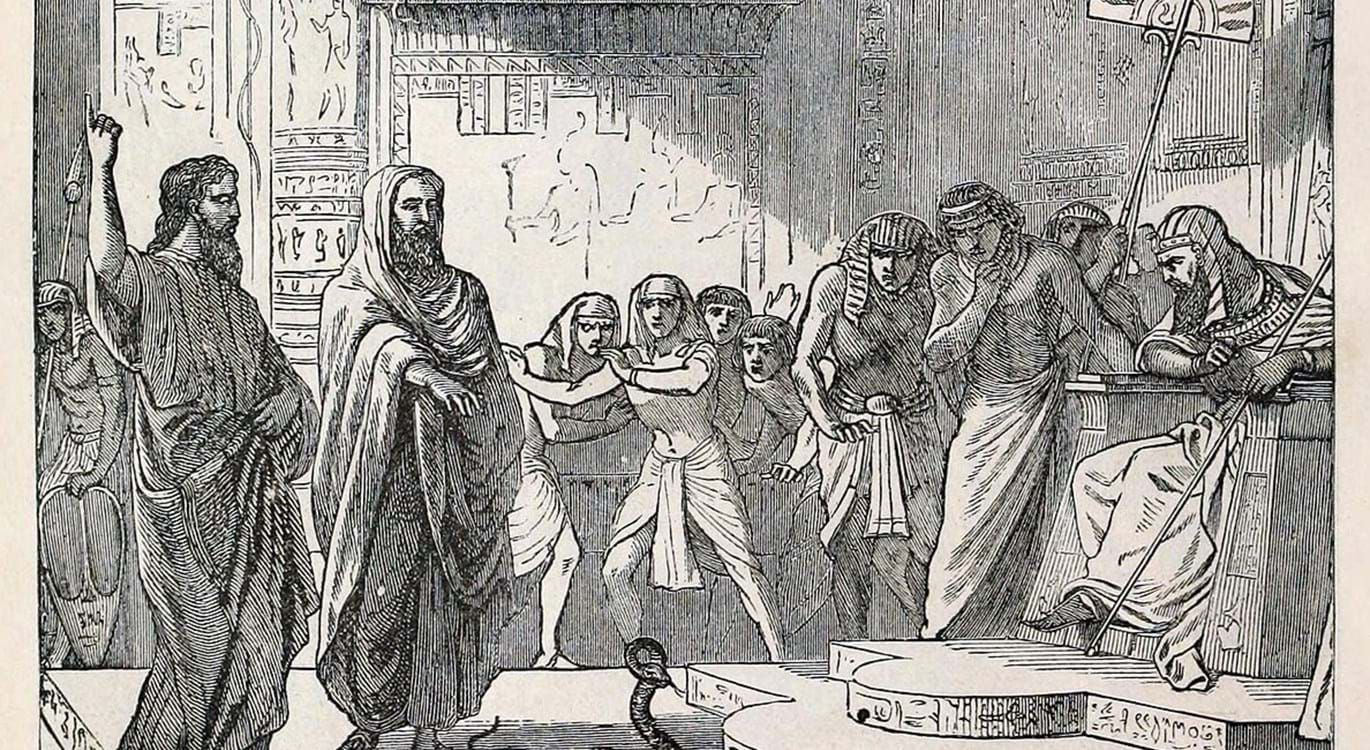But the slavery of God’s people was a problem that still needed remedying and Moses was God’s choice for the job. Although we will not find ourselves in a situation where we are advocating for an enslaved nation, the example of Moses confronting a powerful person on behalf of a bullied few is not so hard to envision. The actions of Moses and the responses of Pharaoh over the better part of a year are instructive as we seek to learn from the patterns of behaviour.
Moses’ Message
Moses’ message to Pharaoh was straightforward, “Thus says the LORD . . . ‘Let my people go’” (Exodus 5:1). Moses was not going to win this confrontation by ingenuity or sleight of hand. He was one man, among an oppressed people, asking the most powerful man in the world for freedom. But they were God’s people, and this was God’s message. And the message never changed. In the face of Pharaoh’s refusals, Moses never relinquished an inch. The victory would be God’s in His way and His time. Moses’ responsibility was to wait and act at God’s behest. We must be clear on the issue and be determined to see it through.
Pharaoh’s Power Plays
1) He questions Moses’ authority, “Who is the LORD, that I should obey his voice?” (Exodus 5:2). God’s Word must be the basis for any confrontation if God is going to work on our behalf.
2) He increases the oppression by requiring more bricks while providing less straw. The confrontation resulted in the people blaming Moses for their increased difficulty. They consider years of slavery to be advantageous when compared with the possibility of freedom if it involves additional hardship along the way. We need to be resolved to carry through despite the opposition of the powerful and the actions of the oppressed who cannot see that freedom is on the other side.
3) He opposes the truth (2 Timothy 3:6). In the face of the miraculous, Pharaoh discounts the power and person of God in favour of the works of the devil. And even when they recognize the “finger of God” (Exodus 8:19), he refuses to listen. We must be prepared for the reality that even if the truth is clear, the battle is not won. Truth doesn’t matter to the wilfully resistant.
4) He is not trustworthy. Pharaoh feigns public compliance in the face of the plague. He pleads for deliverance from the plague, promising release from slavery, but the moment the plague is rescinded he recants on his word. We will quickly learn that a public battle won is just another opportunity for the powerful to dig in deeper. They cannot be trusted.
5) He seeks compromise. He says go but leave the animals, or go but leave the young. He wants them to think the short term gain is worth long term pain. He will lengthen the leash. He is willing to let them taste freedom as long as he still has them under control. We must be wary of compromise. We are too easily swayed into giving in for the sake of peace or because we want relief from the difficulty that we don’t actually break free from the control. The fact that compromise is offered is tacit acknowledgement that control is at stake.
6) He uses force. He calls out the army to recapture Israel after he has set them free. He has no limits when it comes to maintaining his position. We need to know that we are not safe in these situations apart from the protecting presence of God (the cloud in Exodus 14).
God’s Guidance
1) Don’t expect it to be easy. The Lord told Moses many times that Pharaoh wouldn’t listen (e.g., Exodus 7:4). We need faith to sustain us in the impossibility of the situation.
2) Pharaoh’s heart will be hardened. Don’t expect Pharaoh to all of a sudden be a nice guy. If he seems to be, don’t believe it! We are so conditioned to rightly pray for the softening of hardened hearts that we often forget that sometimes God’s purpose is to harden! So don’t be naive to this possibility and don’t discount it!
3) You won’t be free until Pharaoh is dead (see Exodus 14). God wasn’t going to leave the job half done. The threat of future enslavement was removed completely. Pharaoh and his army were drowned and they were physically separated from Egypt by the sea. We must ever hope in the Lord. He promises full deliverance.
Jesus faced similar foes in his earthly ministry. In the face of the miraculous, the Pharisees shared Pharaoh’s power plays. They refused the evidence that Jesus was the Son of God. Their enjoyment of the prestige and authority that accompanied their position overrode acknowledging the reality that Jesus was the Messiah. Jesus ended up being crucified for exposing their hardened hearts. Ironically, the hardened heart of Pharaoh at the beginning of the nation’s existence was reflected in the nation during the ministry of our Lord and resulted in their dispersion. Paul alludes to this in Romans 9-11. National refusal of the Lord Jesus as Saviour by faith resulted in God hardening their hearts (Romans 11:7). Individually, we need to test our hearts. Am I guilty of power plays? If so, I must repent before my heart is hardened! Do I see oppression? Am I willing to stand up to the oppressor, in the fear of God, come what may? Will I support those doing so, or will I settle for compromise in the name of peace? These situations are difficult, but the battle is the Lord’s, and it is the pathway our Saviour walked.
“Today, if you hear his voice, do not harden your hearts” (Hebrews 3:7).



